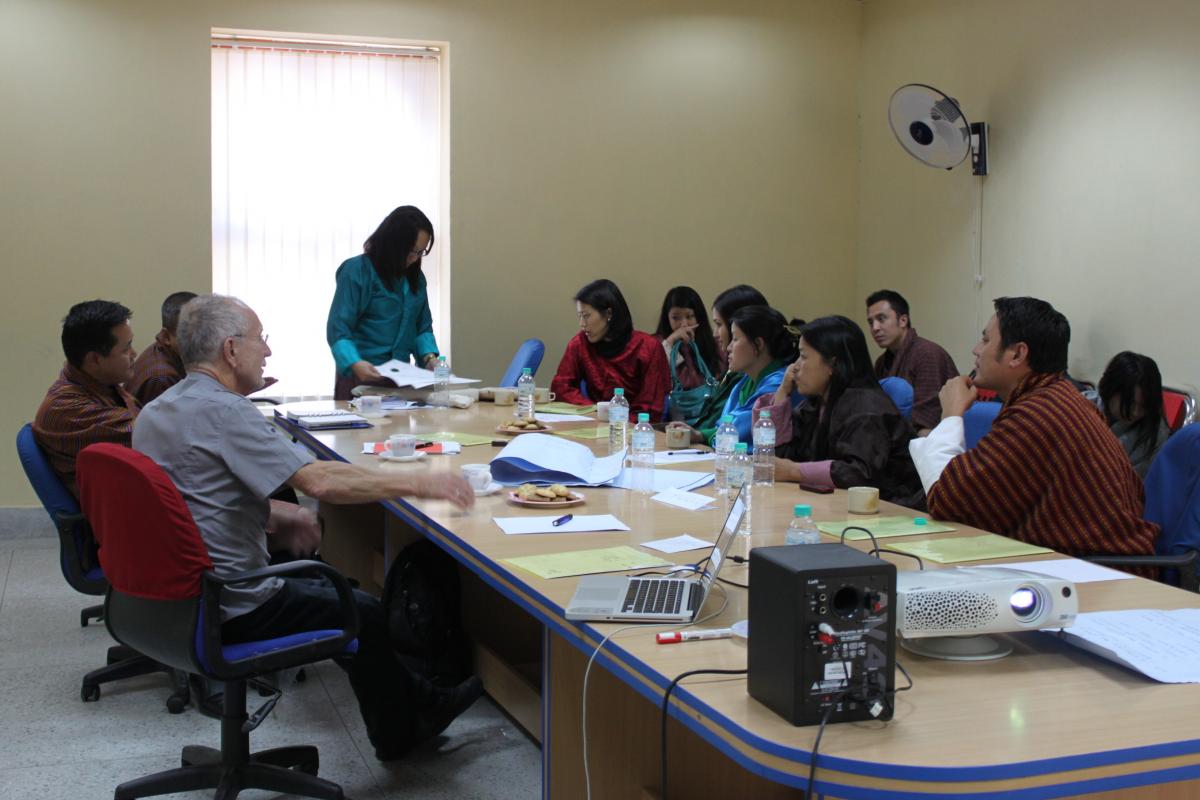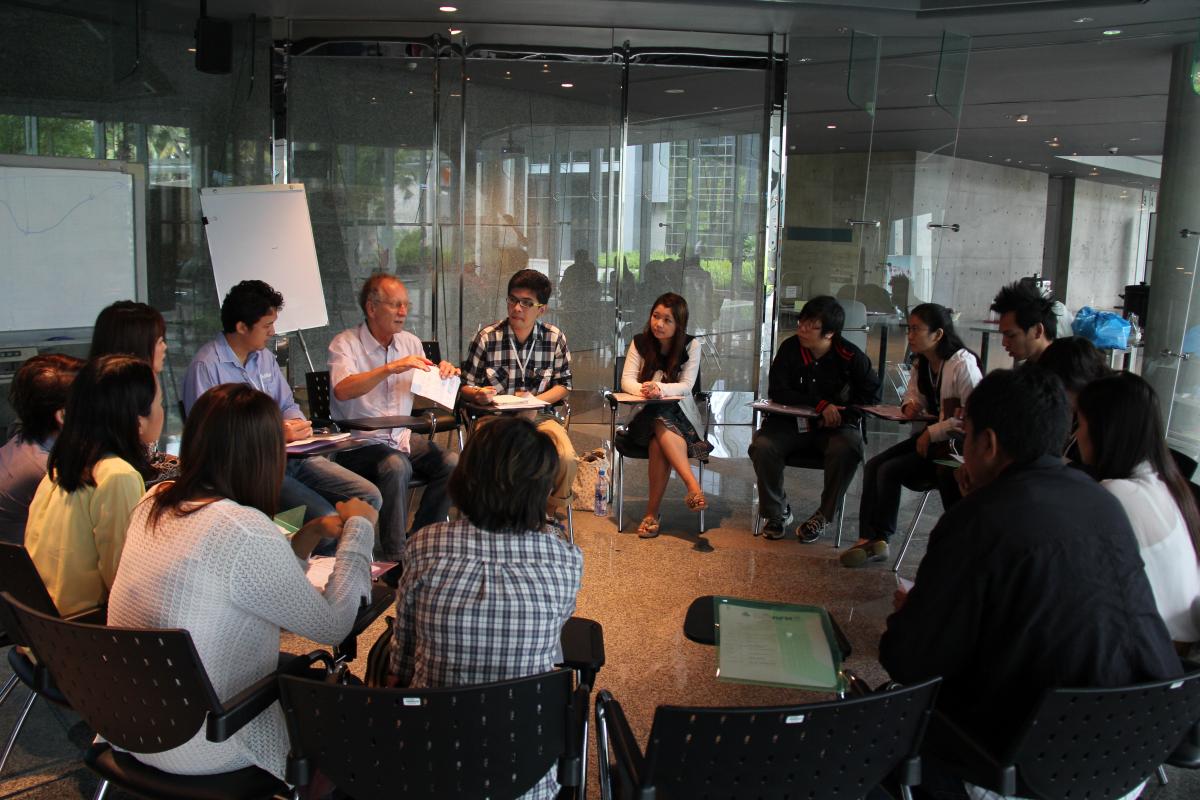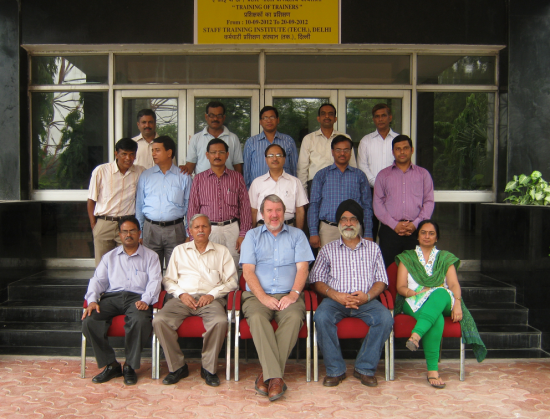Bhutan TV – BBS is one of the youngest TV stations in the world, established in 1999. The number of TV channels in many places in Bhutan, are as in the rest of the world – a lot of international channels via cable and satellite.
For BBS, it is important to create their own programmes for children and youth, which takes care of Bhutanese culture and language.In addition, BBS focuses on parenting programme.
From 8 to 12 October, I had the pleasure of giving a workshop in Thimpu for 10 participants from the staff of BBS.
Bhutan TV – BBS is one of the youngest TV stations in the world, established in 1999. The number of TV channels in many places in Bhutan, are as in the rest of the world – a lot of international channels via cable and satellite.
For BBS, it is important to create their own programmes for children and youth, which takes care of Bhutanese culture and language.In addition, BBS focuses on parenting programme.
From 8 to 12 October, I had the pleasure of giving a workshop in Thimpu for 10 participants from the staff of BBS. My specialty is children's programme – production and international trends.
What we offer children regarding nationally produced programmes helps to strengthen their identity and their linguistic and cultural foundation.
The smaller the language and cultural area – the more important this is. The training of local producers is important to make these programmes as good as possible.
The workshop aims at providing the participants an introduction to children's perception of media, new trends as Transmedia, different age-groups, as well as a introduction of working methods to make them excellent media-workers with and for children.
I had brought with me the best international programme, the participants had brought with them their own productions – and in addition, we worked with drama structure, documentaries, games – and had drama exercises with improvisation.
We also screened and had discussion of participants' own programme. The participants was split into 3 groups with the task of drafting three programmes for children, youth and parenting, including a pitch of the ideas for the TV manager in BBS.
It's always nice to come to other countries and cultures and to feel communication in humor – humor brings us together across cultural barriers, and it's good to keep some childishness when you work with children programmes.
By Mr. Kalle Fürst, Director of Fürst & Far Film and Fjernsyn
AIBD/NRK/BBS In-Country Workshop on Children’s TV Programme
Bhutan TV - BBS is one of the youngest TV stations in the world, established in 1999. The number of TV channels in many places in Bhutan, are as in the rest of the world - a lot of international channels via cable and satellite.
For BBS, it is important to create their own programmes for children and youth, which takes care of Bhutanese culture and language.In addition, BBS focuses on parenting programme.
From 8 to 12 October, I had the pleasure of giving a workshop in Thimpu for 10 participants from the staff of BBS.
AIBD/FES In-Country Workshop on Broadcast Management concludes in Kuala Lumpur
The In-Country Workshop on Broadcast Management jointly organised by AIBD and Friedrich Ebert Stiftung (FES) was conducted as the AIBD office from 8-10 October 2012 in Kuala Lumpur, Malaysia.
AIBD/NRK/Thai PBS In-Country Workshop on Children’s TV Programme
In early September, I had the pleasure of giving a workshop in Bangkok for 16 participants from independent production companies and from members of the staff at Thai PBS.
My specialty is children's programme - production and international trends.It's good to see that it has been increased capacity for production of own national children's program in Thailand.
The efforts put into the production of children's programmes around the world differ widely.
Training of Journalists on Legal Awareness in an Era of Media Convergence concludes in Maldives
16 journalists from Bangladesh, Bhutan, India, Indonesia, Maldives, Nepal and Sri Lanka attended the five day workshop on “Training of Journalists on Legal awareness in an Era of Media Convergence” from 23 to 27 September 2012 in Male, Maldives, hosted by Maldives Broadcasting Commission. Ms Noora Ali, Secretary General of the Maldives Broadcasting Commission extended a warm welcome to the participants at the opening of the workshop. AIBD together with the funding support of IPDC – UNESCO organized this project in order to provide for young journalists with an understanding of their rights and responsibilities, and the practical skills to anticipate and respond to legal challenges in the course of their work. Overall, this was an active and engaged group where often the questions and comments went beyond what were strictly legal issues to journalism practice and ethics. The case studies from the participating countries ranged from restrictions on reporting on protests and civil conflicts, to access to courtrooms, official information and threats of defamation to contempt of court actions generated lively discussions. |
Training of Journalists on Legal Awareness in an Era of Media Convergence concludes in Maldives
16 journalists from Bangladesh, Bhutan, India, Indonesia, Maldives, Nepal and Sri Lanka attended the five day workshop on “Training of Journalists on Legal awareness in an Era of Media Convergence” from 23 to 27 September 2012 in Male, Maldives, hosted by Maldives Broadcasting Commission.
AIBD / AIR-STIT In-country Workshop on Training of Trainers in New Delhi, India
How do you design a training course on transmitter maintenance? An engaging group activity on digital modulation or parabolic antenna satellite tracking? And how do you make sure your trainees gain the knowledge and skills they need to apply on the job?





